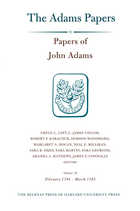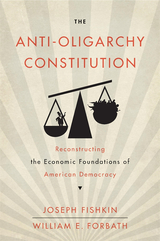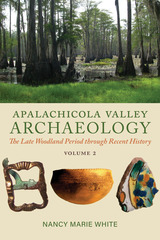
The years 1790 to 1793 marked the beginning of the American republic, a contentious period as the nation struggled to create a functioning government amid increasingly bitter factionalism. On the international stage, the turmoil of the French Revolution raised important questions about the nature of government. As usual, the Adams family found itself in the midst of it all. Vice President John Adams chaired Senate sessions even as he was prevented from participating in any meaningful fashion. Abigail joined him when her health permitted, but even from afar she provided important advice and keen observations on politics and society.
All four Adams children are well represented here, especially Charles and Thomas Boylston, who, for the first time, appear as correspondents in their own right. Both embarked on legal careers, Charles in New York and Thomas in Philadelphia, while John Quincy did the same in Boston. Daughter Nabby cared for her growing family as her ambitious husband, William Stephens Smith, pursued financial schemes. This volume offers both insight into the family and the frank commentary on life that readers have come to expect from the Adamses.

“Once more after an Interruption of ten Years, I pronounce myself a happy Man, and pray Heaven to continue me so.” Thus wrote John Adams in late August 1784 after the arrival in Europe of his wife Abigail and daughter Nabby. Adams and his family were living together in the pleasant Paris suburb of Auteuil. There Adams, with Benjamin Franklin and Thomas Jefferson, formed a joint commission to conclude commercial treaties with the nations of Europe and North Africa. For the first time since he had left America in 1778 on his first diplomatic mission, Adams was no longer engaged in “militia diplomacy.”
Volume 16 of the Papers of John Adams chronicles fourteen months of Adams’ diplomatic career. As minister to the Netherlands he raised a new Dutch loan to save America from financial ruin. As joint commissioner he negotiated a commercial treaty with Prussia, proposed similar treaties with other European nations, and prepared to negotiate with the Barbary states. The commissioners also sought to resolve Anglo-American differences left over from the peace negotiations and arising from the two nations’ burgeoning trade. Volume 16 thus forms a prelude to the next phase of John Adams’ diplomatic career, for his February 1785 appointment as minister to the Court of St. James meant that the management of Anglo-American relations would be his responsibility alone.

On September 3, 1783, John Adams, Benjamin Franklin, and John Jay signed the definitive Anglo-American peace treaty. Adams and his colleagues strived to establish a viable relationship between the new nation and its largest trading partner but were stymied by rising British anti-Americanism.
Adams’ diplomatic efforts were also complicated by domestic turmoil. Americans, in a rehearsal for the later Federalist-Antifederalist conflict over the United States Constitution, were debating the proper relationship between the central government and the states. Adams, a Federalist as early as 1783, argued persuasively for a government that honored its treaties and paid its foreign debts. But when bills far exceeding the funds available for their redemption were sent to Europe, he was forced to undertake a dangerous winter journey to the Netherlands to raise a new loan and save the United States from financial disaster.
None of the founding fathers equals the candor of John Adams’ observations of his eighteenth-century world. His letters, always interesting, reveal with absolute clarity Adams’ positions on the personalities and issues of his times.
READERS
Browse our collection.
PUBLISHERS
See BiblioVault's publisher services.
STUDENT SERVICES
Files for college accessibility offices.
UChicago Accessibility Resources
home | accessibility | search | about | contact us
BiblioVault ® 2001 - 2024
The University of Chicago Press









